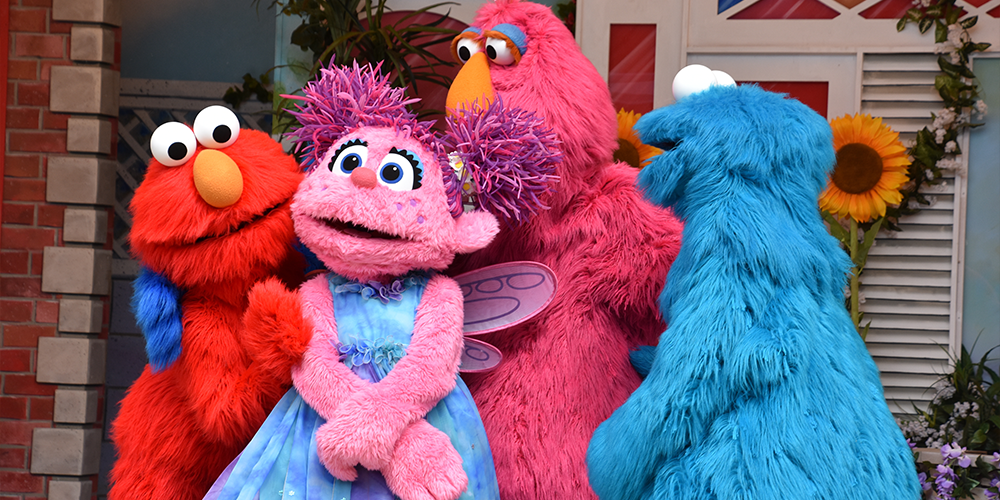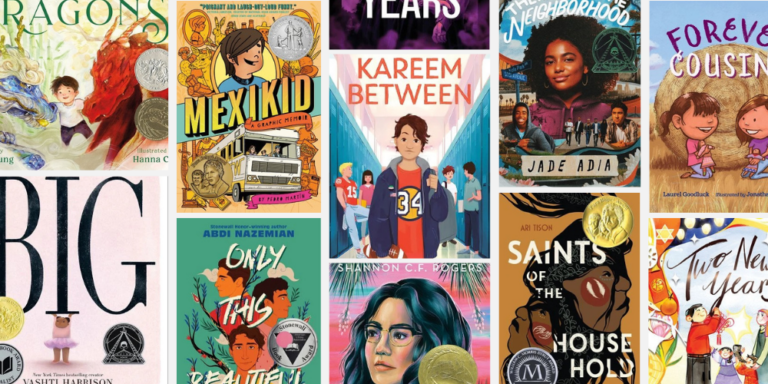Before I went to school, I had a routine.
I sat crisscross applesauce on our orange shag carpet, my back against the brown, worn out sofa, and watched Captain Kangaroo, Mr. Rogers, and Sesame Street. Next on the TV lineup were my mom’s “stories,” so I had to go take a nap when The Young and the Restless came on.
Even though I didn’t know it at the time, I learned how to learn, from these shows. I believed Mr. Rogers when he said I was special. I found friends, especially in Ernie and Kermit. I practiced counting backward and forwards with a simulated pinball machine, knew how to greet people in Spanish, and giggled as I watched a baker sing, “10! Chocolate layer! Cakes!” before dropping all the cakes down the stairs. I understood going to the store meant “a loaf of bread, a container of milk, and a stick of butter.”
All of this meant that, when I showed up for Kindergarten, I had some basics down pat. Colors, numbers, and letters, yes, but also awareness of others, what to do in situations where I got scared, and how to be a friend. While my parents, themselves educators, were strong role models, shows like Sesame Street affirmed their teachings. It’s fair to say, Sesame Street was a key component of my PreK school readiness.

From the 1960s, Sesame Street has been a cultural mainstay, when educator Joan Ganz Cooney explored the use of TV to teach children. Together with Jon Stone and Jim Henson, she created Sesame Street, based on foundational educational topics and an intentionally diverse cast (including Muppets!) to relate to all children. To emphasize how groundbreaking this was, The Street Gang documentarian Marilyn Agrelo says this:
So in 1969, Sesame Street unveils and there is a African American couple who live in the same neighborhood with their white neighbors — yes, with Big Bird and several other Muppets — but it’s a very integrated cast. The first time this [was] ever seen on television in Jackson, Miss., the public television station received a lot of complaints and they stopped airing the show. Miraculously, a commercial station in Jackson said ‘If the public station won’t air it, then we will.’
Through play and problem-solving, the Sesame Workshop’s mission is to “help children grow smarter, stronger, and kinder by delivering research-based, curriculum-directed content that addresses critical educational needs of young children.” The show even revises its curriculum each season to match current PreK readiness criteria.
Now that I am all grown up, I wear a lot of hats in the education world as both a teacher and a parent, but at the end of the day, I will always be the child sitting crisscross applesauce on my living room floor, eyes glued to the TV screen in anticipation, curiosity, and wonder. I will always revere Sesame Street and the unique and groundbreaking ways it taught me how to learn, and the ways it continues to shape our society into a place where everyone belongs.
About the Author

Betsy Butler (she/her) is a Professional Learning Specialist at Teaching Channel. She holds a B.A. in English, a Master’s in Education, and has been teaching since 1992. Betsy uses her three decades of teaching experience to write and revise our courses while selecting the perfect accompanying texts. Her specialty areas include ELA, special education topics, behavior management, and mental health.
Fun Fact: Betsy’s daily conquest is solving the New York Times crossword puzzle!
Resources
“The Story of ‘Sesame Street’: From Radical Experiment to Beloved TV Mainstay,” by Mary Louise Kelly and Sam Gringlas, NPR
Leveraging Mass Media to Support Playful Learning: The Development and Evaluation of Sesame Street’s Playful Problem Solving Curriculum, from the Journal of Children and Media, Vol. 18, 2024.







